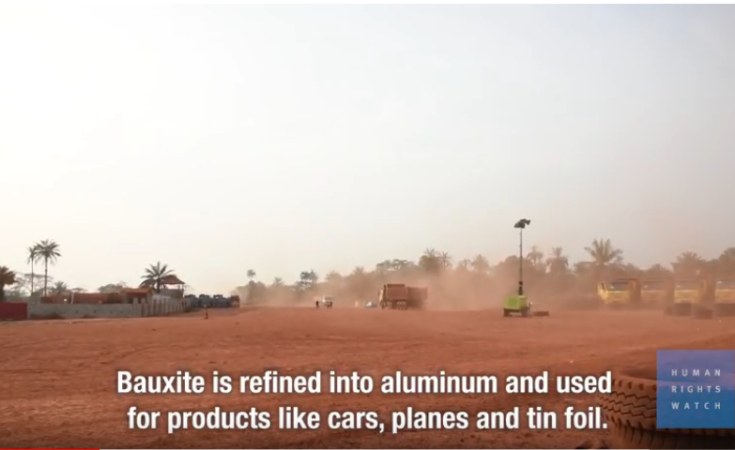Conakry — IFC, a member of the World Bank Group, today announced a $200 million investment package for Compagnie des Bauxites de Guinée, a bauxite mining company in Guinea, that will support broad-based growth, create jobs, and upgrade transport infrastructure links in the West African country that was hit hard by the Ebola epidemic.
IFC's debt financing will be part of the largest foreign investment in Guinea in recent years. The investment will support an expansion of the Sangaredi bauxite mine that CBG has been operating since 1973. The Sangaredi mine has some of the world's largest reserves of high quality bauxite - the primary ore in aluminum, which is used in industries such as aerospace, packaging and transportation, including fuel-efficient vehicles.
Guinea has about 28 percent of global reserves of bauxite, but the industry faces limited infrastructure and governance issues. With the Sangaredi mine expansion, CBG is expected to contribute $150 million in revenues to the government each year and sustain 2,300 permanent jobs and an additional 2,900 contractors. IFC's investment will help fund improvements to shared multiuser infrastructure that is expected to see capacity on the Kamsar-Sangaredi rail corridor increase from the current 15 million metric tons per year to approximately 42 million metric tons per year by the mid-2020s when other potential bauxite projects come on stream.
"Guinea has been working toward improving conditions to attract investment on a much larger scale. The Sangaredi mine expansion and investments in the Kamsar-Sangaredi rail corridor provides an important opportunity to sustain employment for more than 5,000 staff and contractors while promoting high environmental and social standards. We look forward to working in partnership with CBG and the Government of Guinea to develop the bauxite industry," said Philippe Le Houérou, IFC Executive Vice President and CEO.
CBG is 51 percent owned by Halco, a consortium of three major companies active in the alumina and aluminum business: Alcoa, Rio Tinto, and Dadco. The remaining 49 percent of CBG is owned by the Government of Guinea. CBG is already a major contributor to Guinea's economy, contributing more than 50 percent of national mining revenues and 4 percent of gross domestic product.
IFC's loans, which include $135 million loan from IFC's own account and a $65 million loan from IFC's Managed Co-Lending Portfolio Program, have a tenor of 15 years - triple the typical debt tenor for the private sector in Guinea. IFC has to date played a lead role in evaluating environmental and social risks related to the project and will continue in this role to ensure that the Sangaredi mine progresses in a sustainable manner in line with international best practices.
In addition to its engagement in Guinea's mining sector and separately from the CBG financing, IFC has invested in a new hotel in the capital Conakry and is working to help improve the operational performance of the power distribution company, Electricite de Guinée. IFC has also been working with the World Bank to enhance transparency and improve management of the mining sector, including through a new One Stop Shop officially launched in July this year to streamline permits and approvals.
International Finance Corporation (IFC)


